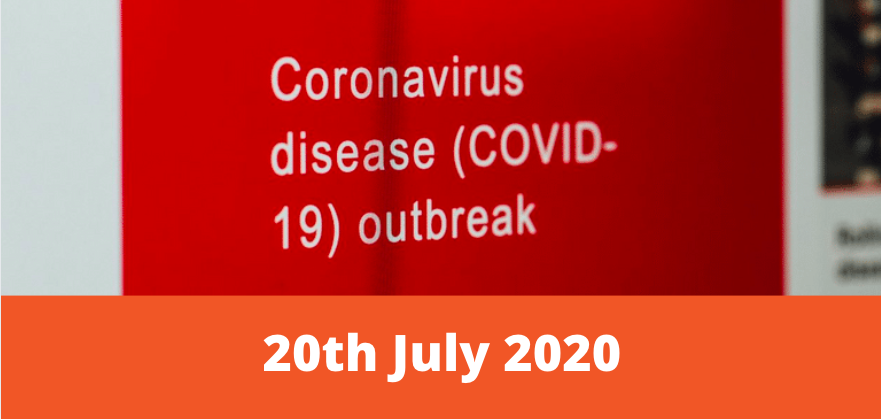Our weekly summary of ongoing advocacy initiatives, interesting surveys and research, government developments and useful resources. Contact us if you’d like to get this update directly into your inbox!
1. Ongoing advocacy initiatives
New Survey: Living on asylum support
Although on 15th June the Home Office implemented an interim increase to asylum support of £1.85 per week, we understand the Department is still carrying out its standard review of the level of asylum support and we want to input into this process. In order to do this, we want to hear from people in the asylum system about their experiences of living on asylum support.
From now until Friday 31st July, Asylum Matters will be running an online survey that is open to people currently living on asylum support to share their experiences. The survey focuses on things such as access to food, medicines, educational resources and digital connectivity.
We would like people to respond about their experiences in general, as the Home Office’s asylum support review is not Covid specific. However, we have added a question so that people can outline their experiences during this time. Participants are able to complete the survey anonymously if they so wish.
We have made efforts to ensure the survey has been written in easy to understand English, and participants can respond in their language of choice. Information gathered via the survey may be used publicly, but always anonymously.
We particularly welcome contributions from families with children in the asylum system, but individuals/single adults on asylum support are also welcome to participate in the survey.
The deadline for survey responses is Friday 31st July.
If you have any questions about this piece of work or would like to get involved either as an individual or as an organisation, please contact Emma Birks via [email protected]
Update: Evictions from asylum accommodation
There has been no further public communication from the Home Office to give people seeking asylum, or the organisations that work alongside them, any indication of if and when the Department intends to resume evictions from asylum accommodation.
The Department has restated in media comments and on Twitter that evictions from asylum accommodation have not yet started and that the decision to restart evictions is still ‘under review.’
We maintain enforced destitution is never acceptable, not least during a public health crisis. The current lack of certainty on the Government’s timescales means that many people in asylum accommodation remain in a state of limbo, not knowing what will happen next. You can read our position paper here.
If you’re interested in working with us and NACCOM to protect people seeking asylum from destitution, please get in touch with us at [email protected].
Update: Maternity Action Judicial Review
Maternity Action lost their legal challenge to the scheme of charging destitute migrant women for NHS maternity care. Following an oral hearing, the High Court denied Maternity Action permission to proceed with the judicial review. Maternity Action is now deciding whether or not to appeal the decision. There was coverage in The Guardian and the Independent.
New call for evidence: ICIBI and Home Office’s Asylum Casework
- the accessibility, clarity and adequacy of Home Office policies and guidance in relation to the asylum process, including country of origin information;
- the availability, costs and quality of advice and support for asylum seekers;
- the quality of screening interviews, substantive interviews and asylum decisions, including for asylum seekers who have protected characteristics;
- timescales, including the reasons for delays;
- communications, including decision letters and Home Office responsiveness to queries and challenges.
The deadline for this inquiry is 14th August 2020. For further details and how to respond, see the ICIBI website.
2. Research and Reports
‘Hear Us’: New Sisters not Strangers report
Sisters Not Strangers – a coalition of eight organisations – surveyed over 100 women seeking asylum in England and Wales to learn about how they are surviving during the COVID-19 pandemic. Their new report – ‘Hear Us’ – highlights some of the serious challenges women seeking asylum have faced during the pandemic.
The report reveals that three quarters of those surveyed went hungry during the pandemic, with many struggling to feed their children. Over a fifth of respondents also said that self-isolation was impossible as they were forced to sleep in the same room as a non-family member. Over 30% also shared that they struggled to afford soap and other hygiene products.
The report goes on to recommend a grant of leave to remain to all those with insecure immigration status, to ensure the safety of people seeking asylum, to protect public health and to enable British society to rebuild more equally. Subsequent recommendations include: a meaningful increase in asylum support rates; safe accommodation; the right to work for people seeking asylum.
New guidance for gendered considerations for frontline services during Covid-19
Joint Council for the Welfare of Immigrants evidence submissions
SOGICA Final Recommendations
3. Home Office and Government Developments
Voluntary Returns Service resumes
The Home Office has recently sent an update on the voluntary returns service, stating that it was due to resume from Monday 13th July 2020.
More information on this update, alongside other policy developments in relation to COVID-19, can be found on the Refugee Council’s website here.
Immigration Tribunals hearings
New Department for Education guidance for care leavers
Government guidance on domestic abuse available in multiple languages
4. Resources and what we’ve been reading …
- IOM UK has designed a Covid-19 Migrant Information Service to provide extra support to migrants in the challenging context of the Covid-19 crisis, its multilingual website and free phone line provides information to migrants living in the UK on 5 key topics: health, work, benefits, visas and immigration, housing and homelessness.
- The Birmingham Mail reports on the experiences of Mimi and her frustration at being prevented from working and Birmingham City Council’s support for Lift the Ban.
- Privacy International have published a long read looking at surveillance practices and data-driven immigration policies and the threats they pose to people and undermining peoples’ dignity, with a particular focus on the UK.
5. New Funding
The Barrow Cadbury Trust is partnering with the National Lottery Communities Fund (NLCF) to distribute COVID-19 emergency response funding to the migration charity sector in England. They have £5 million to distribute for work that will relieve hardship caused by the pandemic among refugees and asylum seekers and migrants experiencing barriers to accessing services (see further information and eligibility criteria here).
This opportunity is available to registered charities or not for profit organisations in England with an income of between £10,000 and £1 million whose main focus is on providing support to refugees, asylum seekers or migrants.



